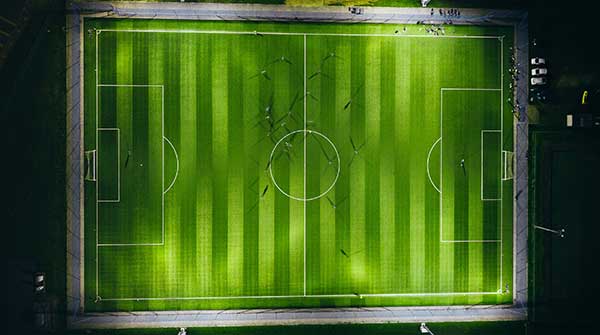Africa’s World Cup soccer performance a testament to its resilience and talent
 The 2023 Women’s World Cup was disappointing for Canada and several other perennial soccer powerhouses. Two other top 10 teams, Germany and Brazil, did not make it out of the group stage. Several more elite teams did not advance, and four-time World Cup Champions, the United States, barely made it into the first elimination round and was finally eliminated after losing to Sweden.
The 2023 Women’s World Cup was disappointing for Canada and several other perennial soccer powerhouses. Two other top 10 teams, Germany and Brazil, did not make it out of the group stage. Several more elite teams did not advance, and four-time World Cup Champions, the United States, barely made it into the first elimination round and was finally eliminated after losing to Sweden.
This does not mean that any of these teams lacked talent or determination. It means we underestimated the teams from other parts of the world, especially Africa.
Due to a global attitude of sexism, the history of the women’s tournament is much more recent than that of the Men’s World Cup. The first official Women’s World Cup did take place until 1991. For decades, the sport was dominated by teams from wealthy countries. The United States won four World Cups, Germany won two, and Japan and Norway each won one. Canada’s best finish was fourth place in 2003.
What is striking in this year’s World Cup is that three of the four teams from Africa made it through the group stage to the round of 16. They include South Africa, Morocco, and Nigeria. Before the tournament, Nigeria was ranked 40th in the world, South Africa was 54th, and Morocco was 72nd. Perhaps this simply means that the Federation Internationale de Football Association (FIFA), soccer’s global governing body, is terrible at ranking women’s teams. Regardless, the performance of African teams in this year’s World Cup should not be such a surprise.
I moved to Africa in the early 1990s, and one of my jobs was to help organize sports activities for children and youth in Kinshasa, the capital of the Democratic Republic of the Congo. I had done similar work in North America, but the first thing that struck me was how unbelievably good the Congolese were at soccer.
They grew up playing barefoot wherever there was an open piece of ground. They kicked anything that could pass for a ball, even a bunch of plastic bags with a string wrapped around them. They were fast, they were fit, and they played with a passion I had never seen before. It seemed to me that a neighbourhood group of kids could have run circles around any team of the same age group I had seen elsewhere. I was convinced that the only reason why Africa did not dominate the soccer world was because communities like Kinshasa simply lacked sports infrastructure.
Much has changed since the early 1990s. For one, the women’s game has grown exponentially. The African teams playing in this year’s World Cup are showing us what happens when Africans, especially African women, are given good coaching and a relatively organized program. This lesson, however, extends far beyond soccer.
Africa’s greatest resource is not its oil, minerals, or forests. It is its people. Africa was pillaged for centuries, and its riches used to build many of the great cities of Europe. The exploitation continues today as foreign mining companies pay workers a pittance to pull resources out of the ground while paying off criminals willing to bleed their own people.
The way that we continue to treat Africans is not only a crime against humanity but also a waste of tremendous human potential. Still, Africans refuse to play the victim. Those who have traversed the continent with their eyes open have seen extraordinary industriousness, ingenuity, and resourcefulness. To this day, I have never worked with wiser, more dedicated, or more effective educators than my Congolese coworkers.
The African teams’ success in this year’s World Cup is not a fluke. It is an example of what people will achieve when given something that begins to resemble a level playing field.
Gerry Chidiac specializes in languages, genocide studies and works with at-risk students. He is the recipient of an award from the Vancouver Holocaust Education Centre for excellence in teaching about the Holocaust.
For interview requests, click here.
The opinions expressed by our columnists and contributors are theirs alone and do not inherently or expressly reflect the views of our publication.
© Troy Media
Troy Media is an editorial content provider to media outlets and its own hosted community news outlets across Canada.


